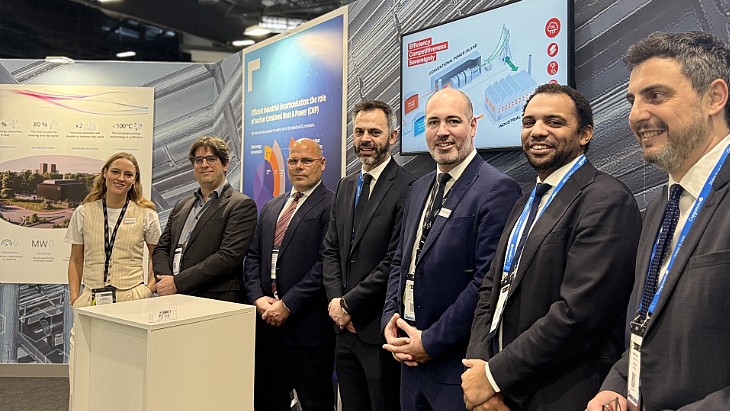Belgium-headquarted Tractebel and Hexana, which was spun out of the French Alternative Energies and Atomic Energy Commission, are aiming to bring together stakeholders from the nuclear, industrial and cogeneration sectors in a new small modular reactor and advanced modular reactor Cogeneration Task Force.
Hexana aims to develop a small modular reactor featuring a sodium-cooled fast neutron reactor, integrated with a high temperature storage device. A plant would comprise two of these reactors (400 MWt each) supplying a heat storage device. An adjoining conversion system will allow it to produce electricity on demand and in a flexible manner to compete with gas-fired power plants, but also to supply heat directly to nearby energy-intensive industries.
Cogeneration refers to producing both electricity and heat and is seen as a way to be able to decarbonise, in particular, certain heavy industries. The new task force will be within COGEN Europe, which is the European Association for the Promotion of Cogeneration.
Bernard Marié, Head of Flex Power, Renewable, Industry & SMR at Tractebel, said: "Decarbonising industry remains one of Europe's greatest challenges, with hard-to-abate sectors like cement, steel, and chemicals responsible for over 60% of EU industrial CO2 emissions. Under the umbrella of COGEN Europe, the Task Force is a strategic step to unlock the potential of nuclear cogeneration and help shape a low-carbon industrial future for Europe. We invite all stakeholders to join us in this effort."
Sylvain Nizou, Hexana CEO, said: "Nuclear cogeneration represents a unique opportunity to combine energy efficiency and low-carbon innovation to replace fossil fuels in industrial clusters. By joining forces, we can make nuclear cogeneration a visible, credible, and supported pathway for industrial decarbonisation in Europe."
Hexana and Tractebel said that their shared vision with the MoU was "ensuring that nuclear cogeneration gains greater recognition within European strategies and financial frameworks supporting the clean energy transition".





_87299.jpg)
_52351.jpg)








